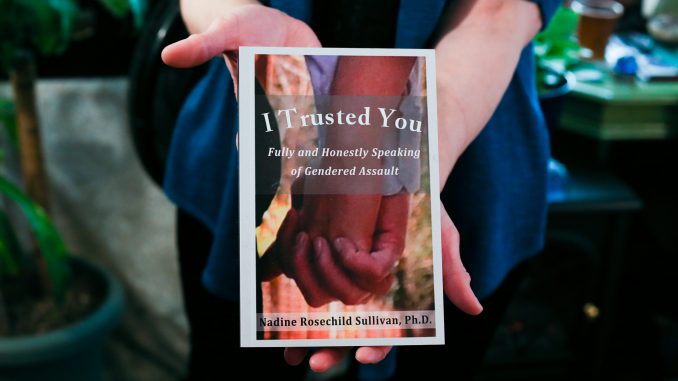
At 12 years old, Rev. Dr. Nadine Rosechild Sullivan began to study Buddhism, Native American spiritualities, European paganism and other religions outside the reach of her Catholic household.
“I’ve always had a very spiritual inclination,” said Sullivan, a women and gender studies professor at Temple. “I’ve always cared and been intensely interested in the [idea] that there is a God and what happens after we die.”
For more than 20 years, Sullivan has been utilizing her spirituality and education as an interfaith minister and counselor – guiding her clients on how to live more fulfilling lives.
Though Sullivan said her practice is not clinical, many of her clients come to her seeking help for problems ranging from maintaining healthy relationships to dealing with anxiety resulting from traumatic experiences.
Through a process of hypnotherapy, Sullivan’s clients are able to uncover repressed memories and experiences that are often unknowingly the roadblocks to a happier and more successful existence, Sullivan said.
“I’m not a psychologist, so I don’t approach clients clinically,” she said. “I just work with [clients] to help them find their sense of purpose – spiritually or just talking it through.”
Hypnotherapy differs from the mainstream idea of hypnosis, Sullivan said, and involves a three step process that begins, first and foremost, with relaxation.
Once clients are relaxed, Sullivan asks a series of questions, following the responses of the client, which allows her insight on how to deal with the specific problem.
“The [clients] are always aware and they remember everything,” she said of the hypnotherapy process. “We’ll explore what’s true for them in that emotional space. There are things we don’t tell ourselves, that we know but don’t quite say out loud.”
Sullivan’s no stranger to her own subconscious – she’s used hypnotherapy to help improve her relationship with food.
Having spent a portion of her adult life overweight, she said she never knew the reason behind her problem until the hypnotherapy session.
“I was asked the question, ‘What was I getting from being overweight,’ and I found I felt safer being overweight [because] it would reflect attention from me,” Sullivan said. “I could see I was not in the same place I was when I was 14, and I could allow myself to be thinner, and I would be safe.”
Sullivan said she believes the method of hypnotherapy has the potential to work for everyone as long as they are willing to be open about the process.
“I do have some clients come in thinking that [hypnotherapy] won’t work,” she said. “I have no magic powers, so the person has to be willing to relax.”
“I think it can work for anyone who can allow themselves to explore that space,” she added. “Our minds protect ourselves a lot, so some people’s childhood traumas – they’ll only see little bits of it. It will come out in layers.”
Though she said some of her clients are fighting to overcome traumatic experiences, Sullivan said she is more frequently encouraged by clients than discouraged.
As a survivor of sexual assault, Sullivan said “learning to heal” is one of the most important things she has done in her life and has sparked her to write her book, titled “I Trusted You,” which was published in 2012.
“I don’t find counseling people disheartening because people do make progress and come to feel better about themselves,” she said. “I almost always end up encouraged. I’m not working clinically … [I’m] generally dealing with people as spiritual beings.”
Sullivan said she has recently been inspired by people’s everyday efforts to end violence against women and children.
“We may not be able to do a lot about sickness and natural causes of death,” Sullivan said. “But if we really could just treat each other better, we’d be better off.”
Alexa Bricker can be reached at abricke1@temple.edu.


Be the first to comment